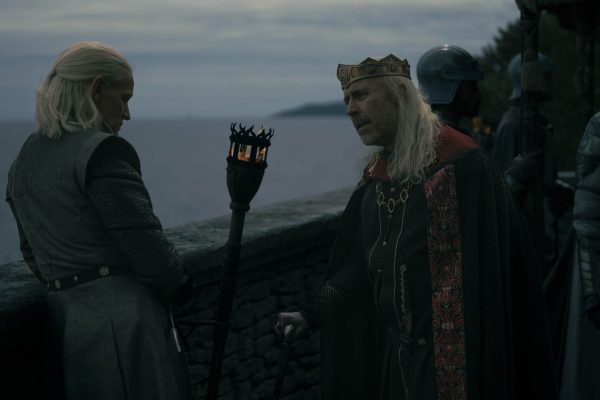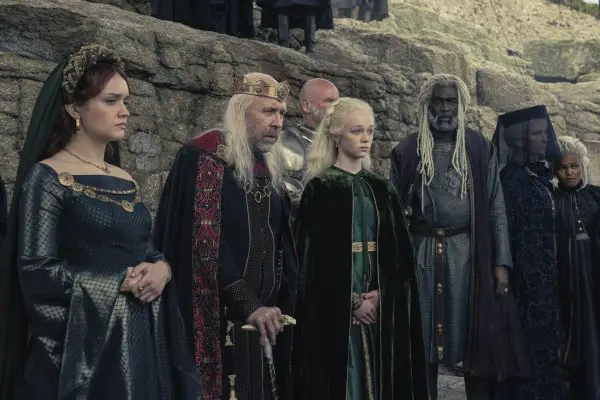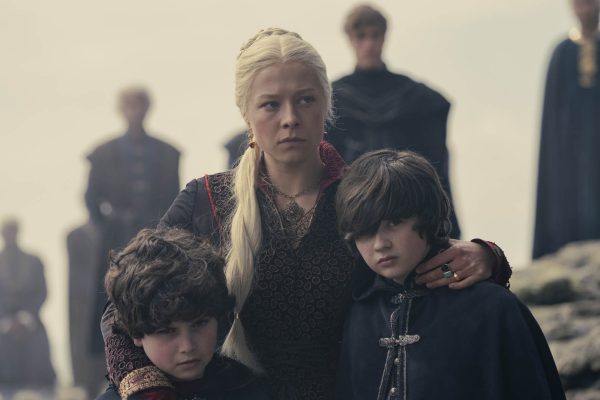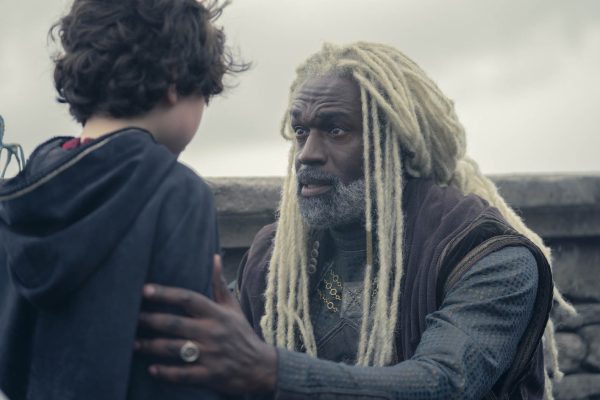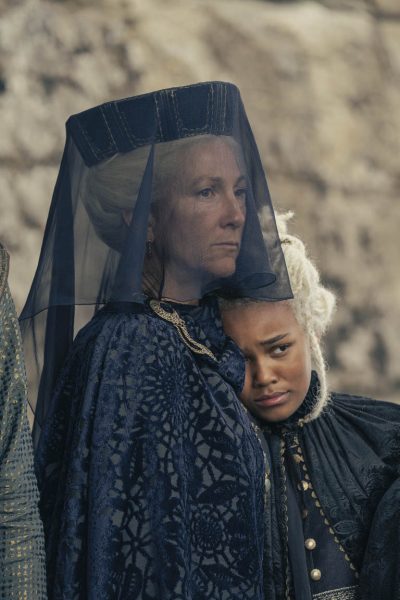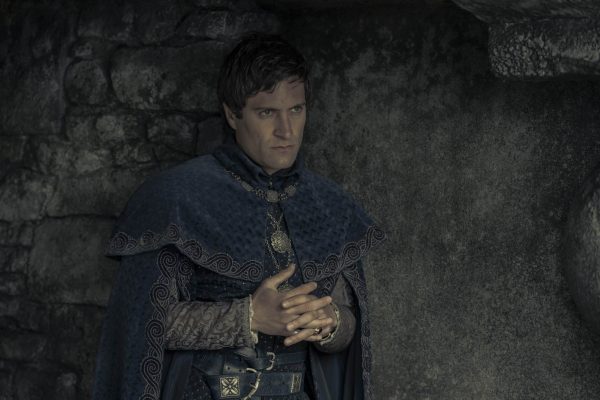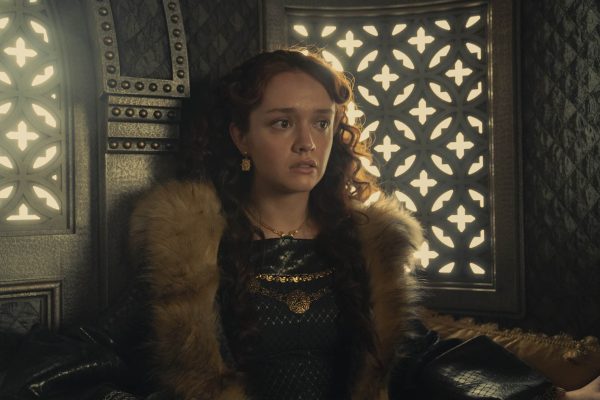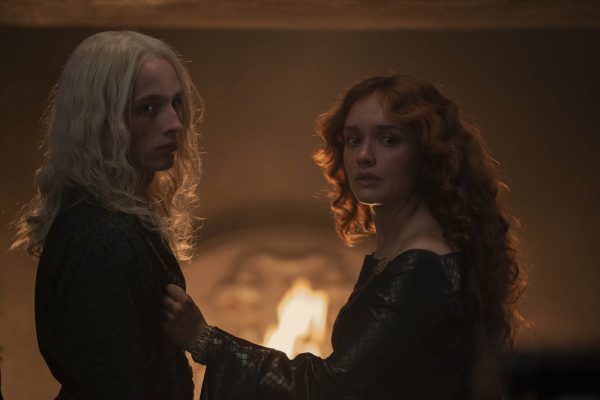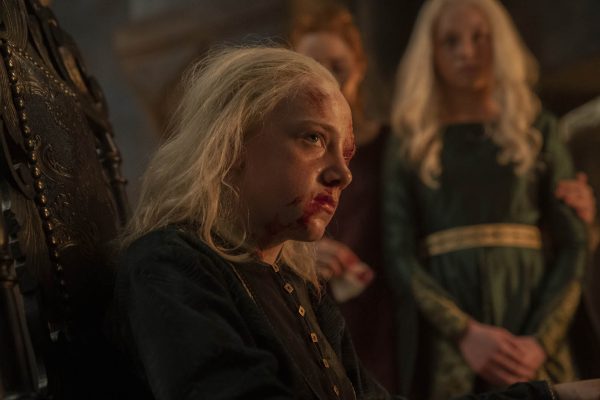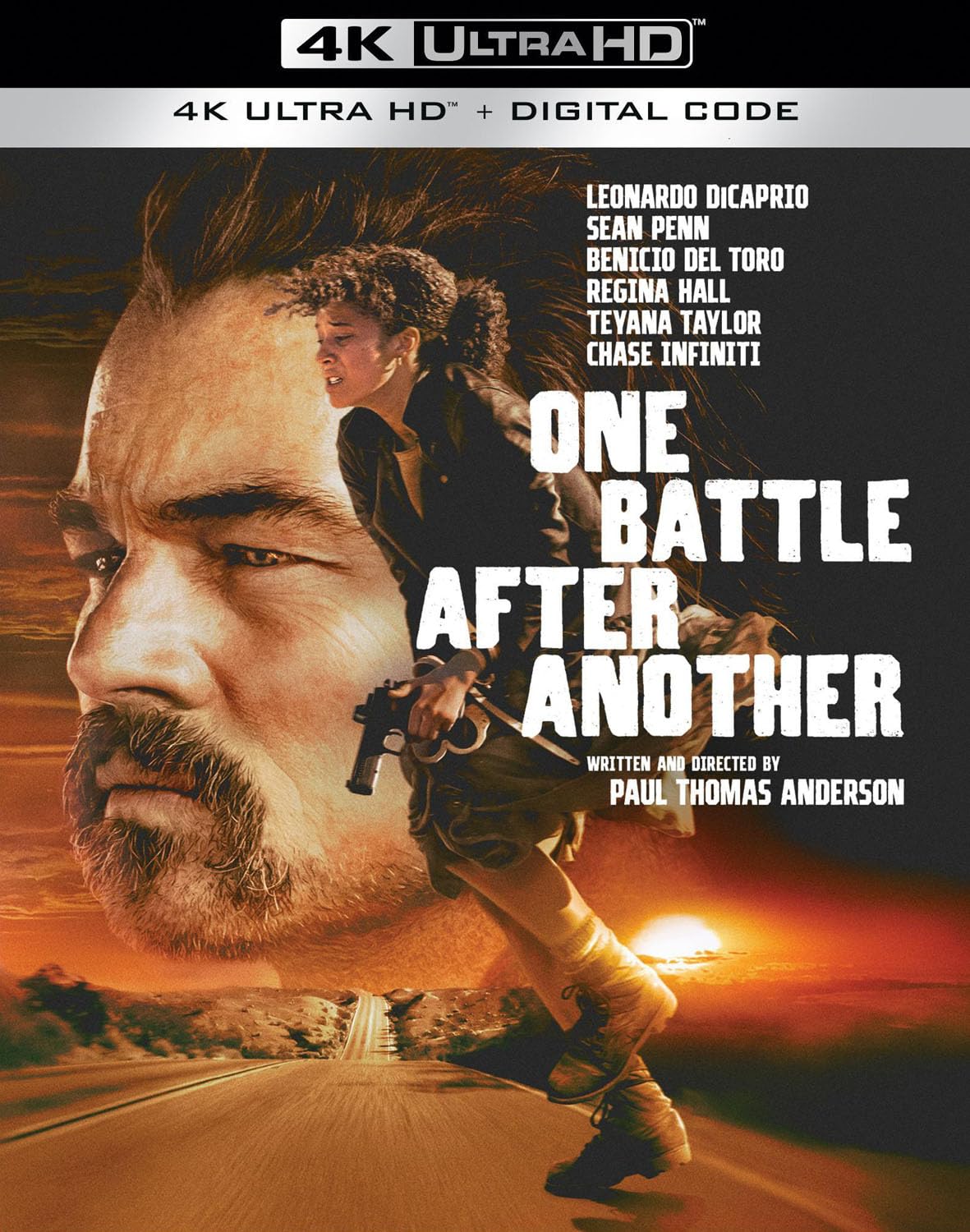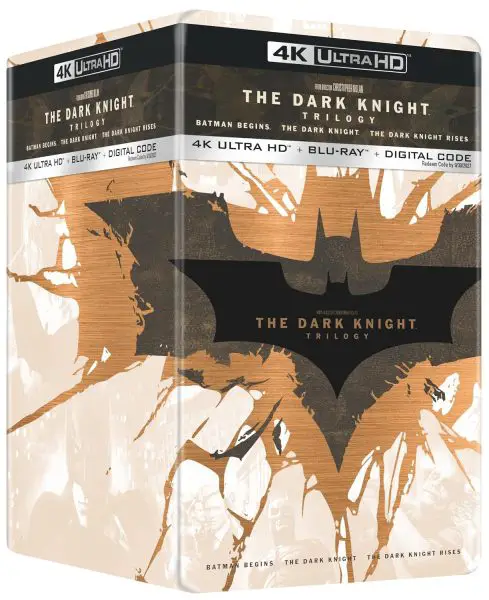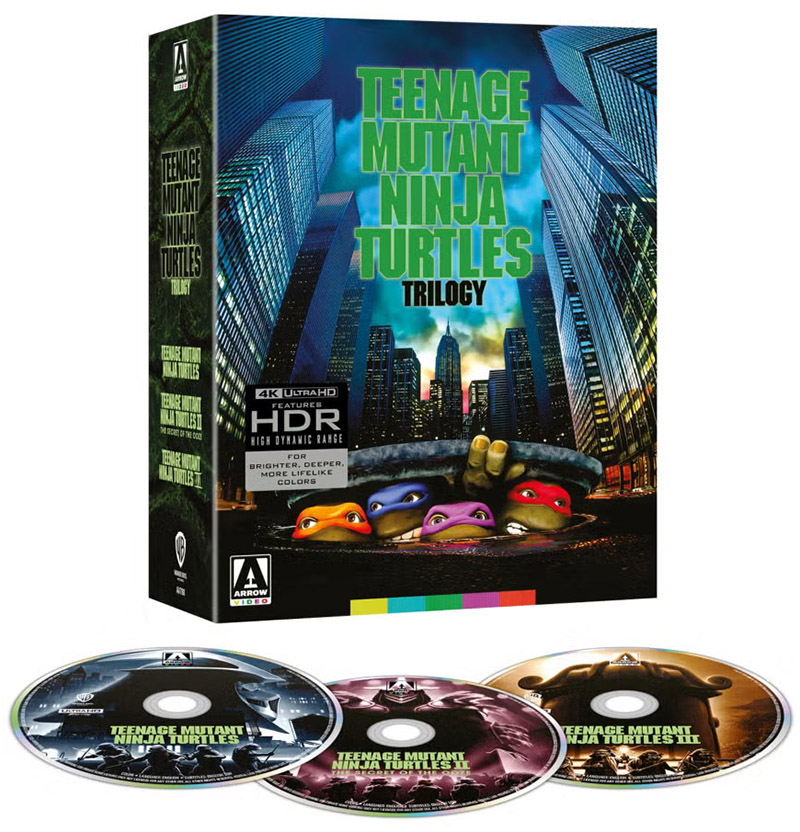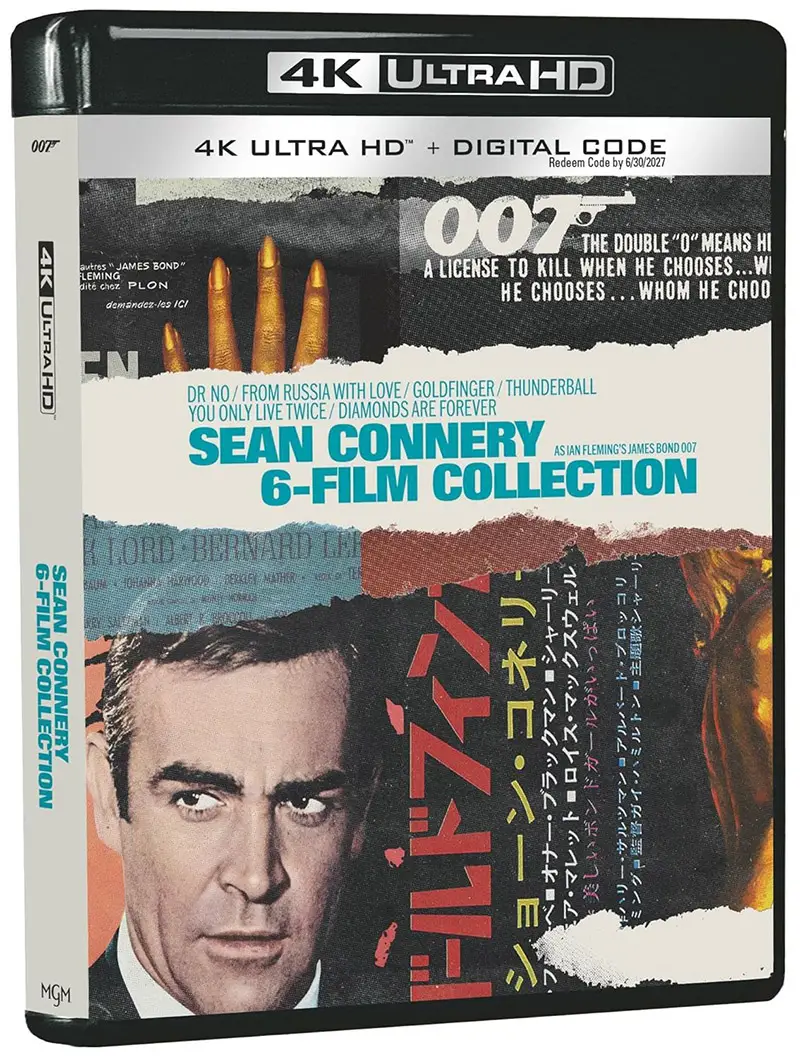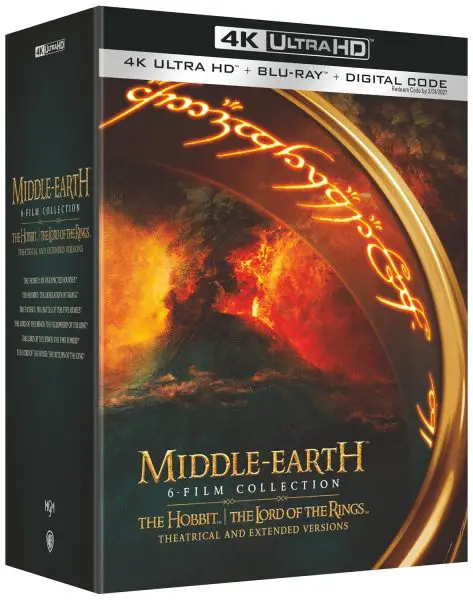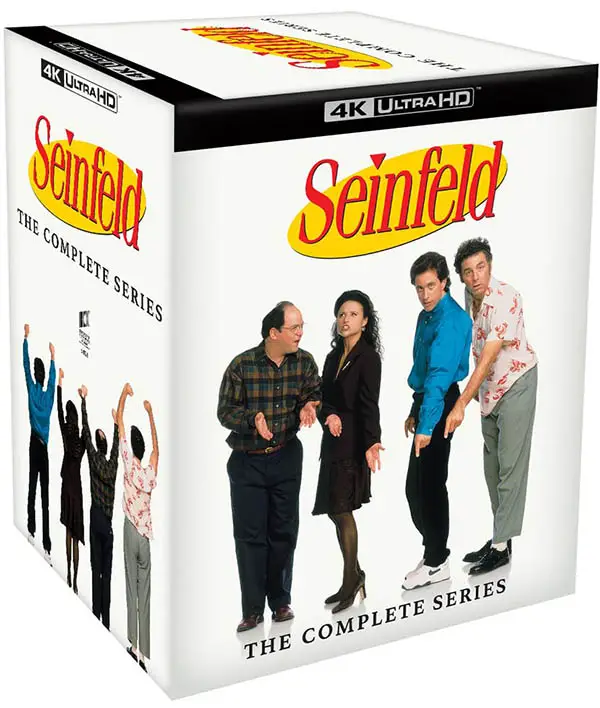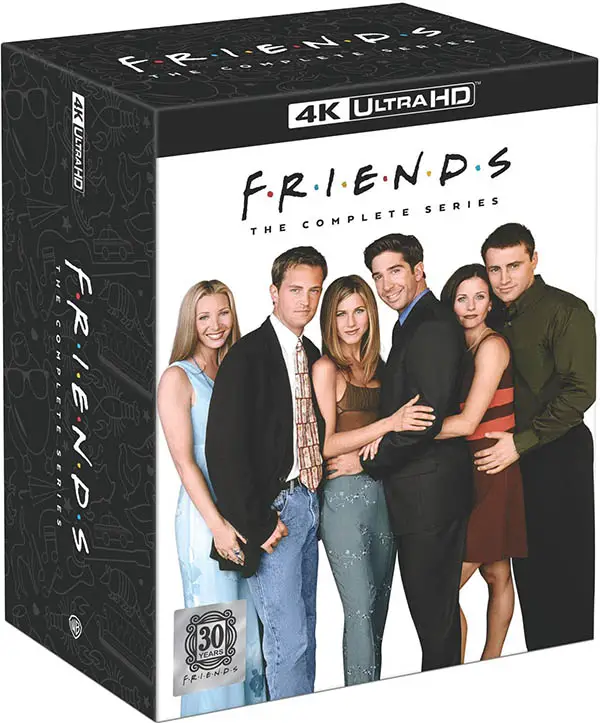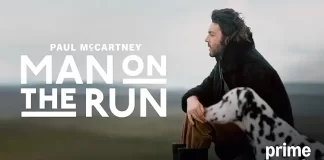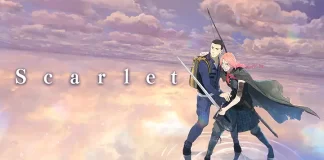House of the Dragon Episode 7 “Driftmark” is the best Game of Thrones content since 2014.
House of the Dragon’s seventh episode is the high point of the series to date. This week marks the supposed last directorial credit for Miguel Sapochnik, who announced his departure from the show’s creative team earlier in September. “Driftmark” covers some key narrative turning points in George RR Martin’s chronology, delivering some fantastic moments of character development and nail-biting tension. While the episode does have a small technical quirk that has already been pointed out by fans online, the episode presents a quality of direction, acting, writing, suspense, and thematic development easily on par with the prime of Game of Thrones.
Picking up only a month after the events of episode 6, which saw Laena Velaryon command her dragon Vhagar to burn her alive to deny the fate of dying in childbirth, “Driftmark” takes place almost entirely at the eponymous castle of house Velaryon for Laena’s funeral. Immediately, the opening funeral ceremony and the subsequent scenes feature almost the entire central cast, which helps bring out the series’ core strength: the intricate web of character dynamics. There are so many great moments in these scenes, kicking off with Daemon’s childish giggling when Vaemond’s eulogy makes a not-too-subtle jibe at Rhaenyra and Laenor or passing off their children as Velaryons. Then there is young Aegon being a cocky inebriate who, when kicked awake by Otto briefly believes it is his mother Alicent who is kicking him. Olivia Cooke has spoken about Alicent’s unspoken envy towards Rhaenyra’s relationship with her children; the way the show teases the cold and harsh nature of Alicent’s relationship with her sons takes on another layer of tragedy. Then, a moment between Jace and Baela (Laena’s elder daughter) where the two share a touching, unspoken exchange of mutual condolence as Jace is also (silently) mourning the loss of his true father: Harwin Strong.
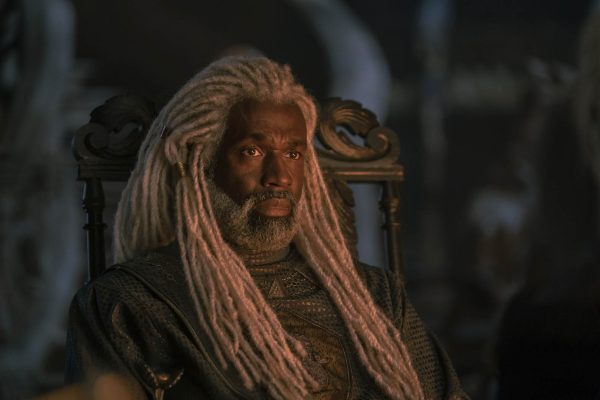
The most compelling dynamic in the entire episode is that between Corlys and Rhaenys, finally giving these characters the development that had before this point been lacking. The two spend the episode negotiating a philosophical impasse. Corlys’ pride in his name was enabling him to overlook the fact that his supposed heir (Jace) does not share his blood. Meanwhile, Rhaenys values Baela (her granddaughter)’s succession over Jace’s due to the same fact. It’s a perfect conflict of two equally justifiable positions that show the clash between different facets of patriarchal control: the ‘purity’ of bloodlines and female disempowerment. The two each favor a solution that speaks to their desires to challenge convention, but the solutions themselves are not mutually compatible. It is a much-needed nuance to develop these two characters beyond holding a grudge over Rhaenys’ denied succession to the Iron Throne.
Aemond Targaryen becomes the central focus halfway through the episode when he attempts to claim Vhaegar. Special credit must go to actor Leo Ashton, who despite relatively little screentime over the two episodes, has been able to convey a full transition of Aemond from a downbeat sibling to a euphoric young thrillseeker riding a dragon, and finally to sociopathic rage as he faces off against the Velaryon children. This savage brawl leads into the most climactic scene in the series yet, where Alicent’s facade of dignity and self-righteousness is pushed to its breaking point. Faithfully adapting the same encounter from Fire and Blood, the scene is oozing in suspense as the loss of Aemond’s eye, and the provocation behind the fight provokes Rhaenyra and Alicent to become more defensive of their offspring. Just as with the best of Thrones, there is such a joy in the sensation of anticipating what will happen from the books, and yet still being on the edge of one’s seat as the captivating performances, sharp writing and soundscape keep notching up the tension.
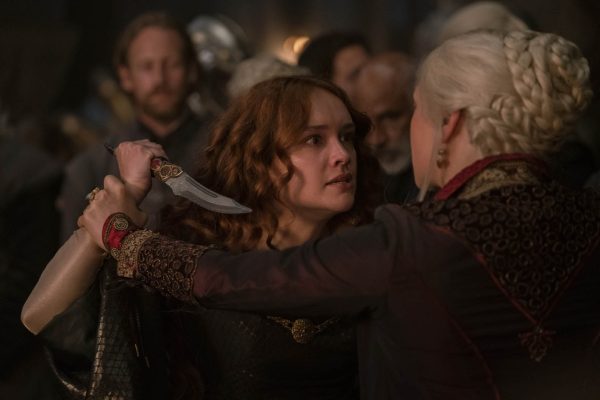
Ironically, “Driftmark” also demonstrates how the show can create great character drama by deviating and contradicting the accounts presented in Fire and Blood. This is apparent in the episode’s shocking conclusion. As Daemon and Rhaenyra agree to marry one another, knowing that it must mean that Laenor, the episode’s closing sequence implies (aligning with the books) that Daemon hired Laenor’s lover Carl to publicly murder him, resulting in the two fighting and Laenor’s charred corpse being retrieved from a fireplace. In a superb twist, the final shot reveals Laenor to be alive, clean-shaven and escaping with Carl which pays off the cryptic exchange of dialogue between Rhaenyra and Daemon. It was fantastic to see the relief of fans who were worried the show would brazenly kill off Laenor, not only out of the ‘bury your gays’ trope but also out of the fact Laenor had not been given much to do over the series despite John MacMillan’s great screen presence and chemistry with Emma D’Arcy. While this change does leave the door open for Laenor to return later in the series (fans are already anticipating a certain character in Fire and Blood could easily be Laenor in disguise), I am enjoying seeing an underappreciated character be granted a rare happy ending!
The episode only has one significant fault that holds me back from deeming Driftmark on par with the absolute best of Game of Thrones. it may sound trivial, but the lighting and visual palette for the middle chunk of the episode is reminiscent of the same problems viewers had when Sapochnik directed “The Long Night”. Shooting day-for-night (color-tinting footage shot during the daytime to emulate the blueish tones of the evening) results in an incredibly murky middle act to the episode. The contrasting scenes of Damon and Rhaenyra confessing their feelings, with Aemond claiming and riding Vhagar, are disappointingly flat and dull in their aesthetic, making it difficult to appreciate the otherwise-impressive cinematography and VFX work. It is a shame that the episode’s lasting discussion point was this underlit middle sequence, rather than the truly excellent character drama at every other point.
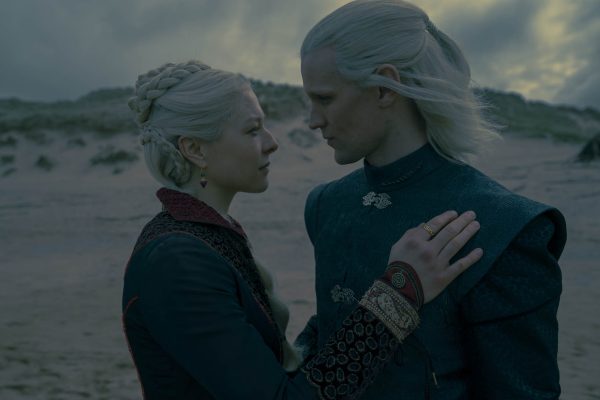
Next week, we will see the last major time jump where the younger generation of Targaryens and Velaryons will be replaced by their adult counterparts. Aemond Targaryen (Ewan Mitchell) is already looking to steal the show both in appearance and demeanor, but with just two episodes it should be noted how excellently chosen the younger cast has been. Just as with Milly Alcock and Emily Carey, I sincerely hope that we have not seen the last of them yet in House of The Dragon.
Read: House of the Dragon: Season 1 Episode 8 Review
